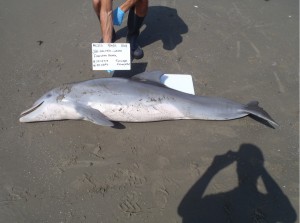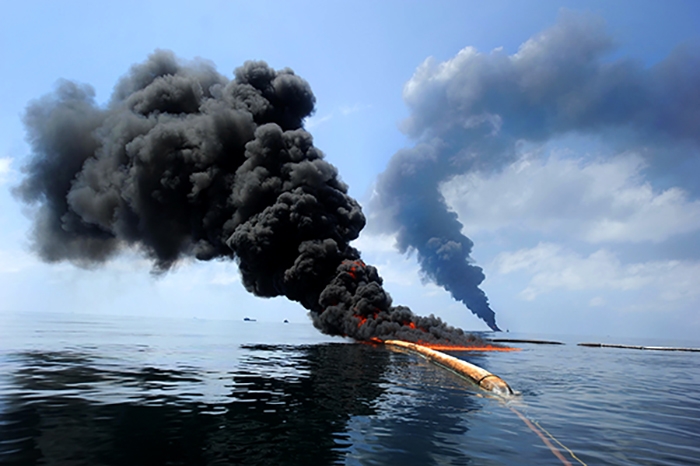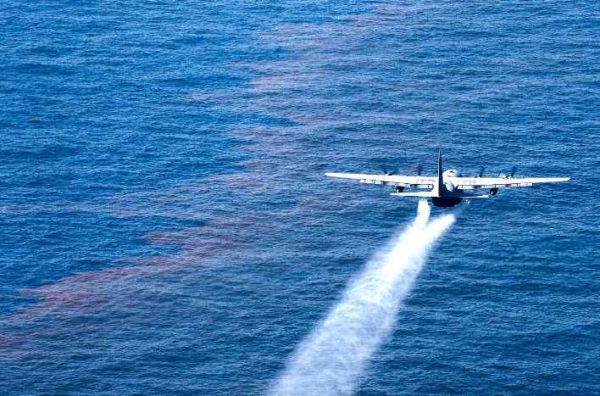
As part of an unusual mortality event investigation, a team of scientists has discovered that dead bottlenose dolphins stranded in the northern Gulf of Mexico since the start of the Deepwater Horizonoil spill have lung and adrenal lesions consistent with petroleum product exposure according to a paper published Wednesday in the peer-reviewed online journal PLOS ONE.
These findings support those of a 2011 health assessment of live dolphins in Barataria Bay, Louisiana, a heavily oiled area during the spill which showed those resident dolphins had poor health, adrenal disease, and lung disease.
The timing, location, and nature of the detected lesions support that contaminants from theDeepwater Horizon oil spill caused these lesions and contributed to the high numbers of dolphin deaths within this oil spill’s footprint. Increased dolphin deaths following the oil spill are part of the northern Gulf of Mexico unusual mortality event investigation.
“This is the latest in a series of peer-reviewed scientific studies, conducted over the five years since the spill, looking at possible reasons for the historically high number of dolphin deaths that have occurred within the footprint of theDeepwater Horizon spill,” said Dr. Teri Rowles, veterinarian and one of 22 contributing authors on the paper, and head of NOAA’s Marine Mammal Health and Stranding Response Program, which is charged with determining the causes of unusual mortality events, also known as UMEs. “These studies have increasingly pointed to the presence of petroleum hydrocarbons as being the most significant cause of the illnesses and deaths plaguing the Gulf’s dolphin population. This study carries those findings significantly forward.”
Direct causes of death, during this period, likely included:
-
Chronic adrenal insufficiency resulting from adrenal gland effects;
-
Increased susceptibility to life-threatening outcomes due to adrenal insufficiency, especially when challenged with pregnancy, cold temperatures, and infections; and
-
Increased susceptibility to primary bacterial pneumonia, possibly due to lung injury, or alterations in immune function.
Animals with untreated adrenal insufficiency are at risk of life-threatening adrenal crises. The adrenal gland produces hormones – such as cortisol and aldosterone – that regulate metabolism, blood pressure and other bodily functions.
“Animals with adrenal insufficiency are less able to cope with additional stressors in their everyday lives,” said Dr. Stephanie Venn-Watson, the study’s lead author and veterinary epidemiologist at the National Marine Mammal Foundation, “and when those stressors occur, they are more likely to die.”
Since early 2010, there has been an ongoing cetacean unusual mortality event involving primarily bottlenose dolphins in the northern Gulf of Mexico. Three out of four groupings of elevated dolphin strandings identified within this event followed the Deepwater Horizon oil spill.
Pages: 1 2





